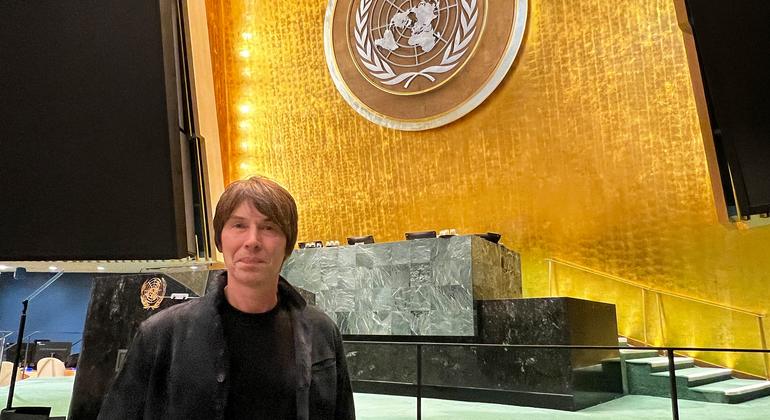
The role of space technology in addressing global challenges is becoming increasingly vital. This perspective is championed by Professor Brian Cox, who has been designated as the United Nations Champion for Space. His appointment underscores the transformative potential of space technology in tackling issues such as climate change, disaster management, and sustainable development.
Professor Cox emphasized the necessity of a unified global approach to space exploration. Speaking to UN News, he stated, “We have to operate in certain areas as a single planet; space is one of the best examples of that,” highlighting that space does not “respect international borders, which is why you need organizations like the United Nations.”
The Role of UNOOSA in Space Cooperation
The United Nations Office for Outer Space Affairs (UNOOSA), based in Vienna, is responsible for promoting international cooperation in the peaceful use and exploration of outer space. The office’s designation of Professor Cox as the UN Champion for Space is part of its strategy to engage prominent figures in raising awareness about the benefits of space technology.
Aarti Holla-Maini, Director of UNOOSA, praised Professor Cox, stating, “Professor Cox has inspired millions around the world with his passion for science and his ability to communicate complex ideas in an accessible and engaging way.” She added that his commitment to public understanding of science aligns perfectly with UNOOSA’s mission.
The Tradition of UN Champions for Space
The honorary position of UN Champion for Space follows a tradition of enlisting influential individuals to highlight UN activities and priority issues. Notably, astronaut Scott Kelly served as a Champion for Space in 2016, bringing attention to the significance of space exploration in global development.
Professor Cox expressed his pride in supporting UNOOSA, stating, “I’m proud and honoured to support the United Nations Office for Outer Space Affairs in raising awareness of how space solutions can advance progress for us all.” He emphasized that space exploration is not solely about curiosity-driven endeavors but also about building a sustainable global economy and advancing humanity collectively.
Space Technology: A Tool for Global Progress
The announcement of Professor Cox’s role comes at a time when the world is increasingly looking to space technology as a tool for addressing pressing global issues. From satellite monitoring of environmental changes to providing communication networks during disasters, the potential applications are vast.
Experts argue that fostering international cooperation in space exploration can lead to significant advancements in technology and knowledge sharing. This collaboration is crucial for tackling challenges that transcend national boundaries, such as climate change and resource management.
“Space is not just about the curiosity-driven exploration of the cosmos; it’s about creating a stronger and more sustainable global economy for everyone on Earth, and moving humanity forward, together.” – Professor Brian Cox
Looking Ahead: The Future of Space Collaboration
As the world continues to face complex challenges, the role of space technology in providing innovative solutions is likely to grow. The work of organizations like UNOOSA and the advocacy of figures like Professor Cox are essential in ensuring that space exploration remains a collaborative effort aimed at benefiting all of humanity.
Moving forward, the focus will be on enhancing international partnerships and investing in technologies that can address both current and future global issues. The hope is that through these efforts, space exploration will not only advance scientific knowledge but also contribute to a more equitable and sustainable world.






